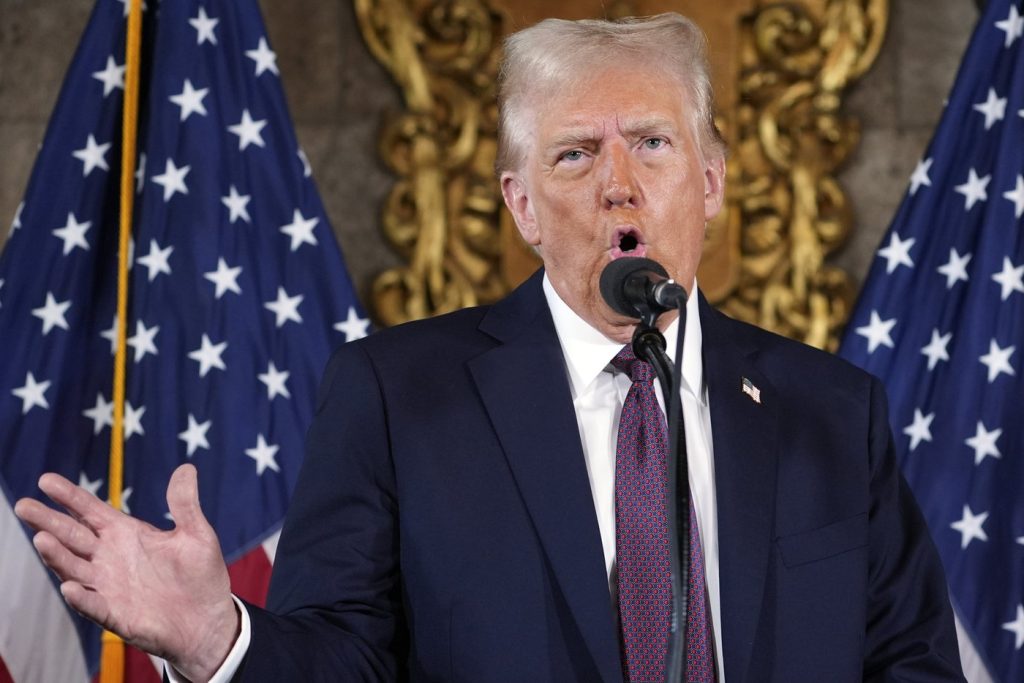On January 7, 2025, Prime Minister Justin Trudeau responded emphatically to former President Donald Trump's ongoing remarks suggesting that Canada would be better off as the 51st state of the United States. Trudeau's retort came amid heightened tensions regarding impending trade tariffs that Trump has threatened to impose on Canada and Mexico should he take office.
In anticipation of Trump's inauguration, which was scheduled to take place in less than two weeks, Trudeau announced an in-person meeting with Canada's provincial premiers in Ottawa. This gathering is intended to strategize a collective response to Trump's claims and tariffs. Trudeau and the premiers had previously conducted two virtual meetings, discussing the potential repercussions of the tariffs that Trump threatened to implement at a rate of 25 percent on Canadian imports upon assuming office.
During a news conference, Trump reiterated his assertions regarding Canada, suggesting that the elimination of the "artificially drawn line" of the border between the two nations would enhance national security. Notably, Trump hinted at the use of "economic force" rather than military action to push for the merging of the two countries, distinguishing Canada’s situation from his comments on other territories like Greenland and the Panama Canal.
Trudeau, who had refrained from commenting on Trump's annexation suggestions until this point, firmly stated that there was "not a snowball's chance in hell" of Canada becoming part of the United States. He emphasized the mutual benefits enjoyed by both countries as they maintain their roles as each other's most significant trading and security partners.
Trump's remarks regarding Canada’s potential statehood originated during a meeting with Trudeau and Finance Minister Dominic LeBlanc in November 2024. LeBlanc, who categorized Trump's notion as "a joke," found the situation more serious given Trump's latest comments. Furthermore, Foreign Affairs Minister Mélanie Joly criticized Trump's statements, indicating a lack of understanding regarding Canada's strength as a nation.
In a display of solidarity, the Liberal Party shared a map labeling Canada as "Not the United States," while Trump retaliated by posting maps on Truth Social that depicted both countries together under the label "United States." Opposition parties also weighed in, with NDP Leader Jagmeet Singh admonishing Trump to "cut the crap" and warning that his proposed tariffs could have detrimental effects on jobs in both countries. Likewise, Conservative Leader Pierre Poilievre reaffirmed Canada's independence, stating unequivocally that Canada would never become the 51st state.
In addition, Trump discussed his plans for imposing "substantial" tariffs on Canada and Mexico as a means to control the flow of illegal drugs and migrants across the borders. Despite the criticism and rising concerns over Trump's understanding of trade relationships, various Canadian political leaders have warned about potential retaliatory measures if the tariffs are enacted. Ontario Premier Doug Ford hinted at possible limitations on energy exports to the U.S. in response to Trump's actions.
On the other hand, Alberta Premier Danielle Smith demonstrated reluctance about imposing retaliatory tariffs on the oil and gas sector but reiterated that Canada remains a strong, independent nation with a robust economy. British Columbia Premier David Eby underscored the importance of a united front among the premiers to counteract the tariff threats, advocating for a collaborative resolution rather than punitive measures affecting both Canadian and American workers.
As this situation unfolds, analysts have expressed concern about the implications of Trump's comments for U.S.-Canada relations. Matthew Lebo, a political specialist, conveyed that Trump's remarks reflect a significant misunderstanding of the bilateral relationship, leaving Canada in a precarious diplomatic position, particularly with Trudeau's impending resignation following the election of a new Liberal leader.










